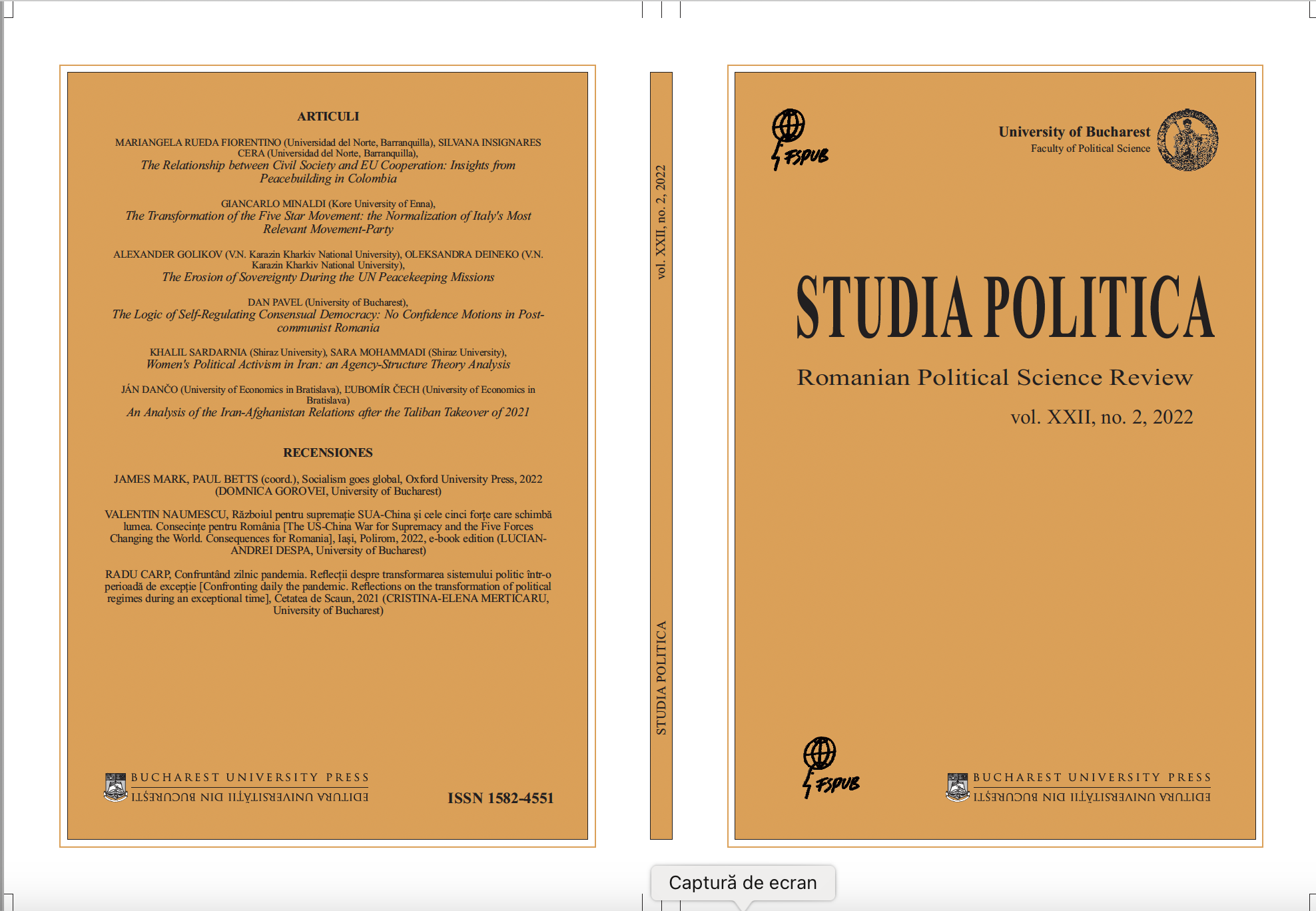The Logic of Self-Regulating Consensual Democracy: No Confidence Motions in Post-communist Romania
The Logic of Self-Regulating Consensual Democracy: No Confidence Motions in Post-communist Romania
Author(s): Dan PavelSubject(s): Governance, Local History / Microhistory, Political history, Government/Political systems, Electoral systems, Post-Communist Transformation
Published by: Editura Universităţii din Bucureşti
Keywords: Romania; no confidence motions; political parties; post-communism; political conflicts; patterns of democracy;
Summary/Abstract: This article argues that no confidence motions passed in the last few years in the Romanian Parliament can be interpreted as the transformation of a dysfunctional majoritarian dimension of a consensus democracy into a consensual dimension. For years, the Cabinet had been in a dominant position over the Parliament, and no confidence votes had no chance to be passed. But in time the quality of the parliamentary parties in power and in opposition improved, and the legislature started to be more and more relevant. The history of no confidence motions in post-communist Romania is relevant. The correction of the dysfunctional dimensions of democracy resulted in dramatic changes of cabinets and executive coalitions. This article will analyze and explain how a succession of no confidence motions (in Romanian – moțiuni de cenzură, in English – “motions of censure”) transformed the nature of the political system and of democracy.
Journal: Studia Politica. Romanian Political Science Review
- Issue Year: 22/2022
- Issue No: 2
- Page Range: 287-309
- Page Count: 23
- Language: English

